Review for Mirai (AU)
Introduction
This is the exception that proves the rule. In the UK, when it comes to special editions, and specially curated titles, giving the customer value for money when it comes to physical and on disc extra features, All the Anime is the label to go to. I am very rarely disappointed by their releases, and even if I am, it will still be as good as anything else available from abroad. I have never emphatically said that an All the Anime release was so poor that you simply have to get another version, except for this... Mirai.
Mamoru Hosoda has established himself as a creator of quirky family films ever since the stunning The Girl Who Leapt Through Time, a veritable Miyazaki for the modern age, and all of his films have made significant impact. The anticipation for Mirai was strong in 2018, and he certainly didn’t disappoint with a whimsical and heartfelt film. Given that Manga Entertainment had released all of his films except for The Boy and The Beast, which itself went mainstream with a release from Studiocanal in the UK, it was quite a coup for All the Anime to nab Mirai, and they gave it the Collector’s Edition treatment in the UK, with a 40 page making of booklet, the soundtrack CD, and artcards and a poster. That quickly sold out, and all that was left were the standard edition BD and DVD releases, which had absolutely nothing on disc other than the movie. When I saw what the US release from GKids, and the Australian release from Madman Entertainment packed onto their discs, I had no choice but to recommend importing instead, something I have never done for any other title released by All the Anime.
Anyway, I’m now looking at the Australian release, and here’s what UK Mirai fans missed out on.
4-year-old Kun was the apple of his parents’ eye, the centre of attention and recipient of all the love they could muster. That was until the day his mother come home from the hospital with a little baby sister, Mirai. Now all of a sudden, he’s second best in the family, his parents are doting on his little sister, and he’s supposed to be a big brother and protect her. It isn’t long before the tantrums begin, and the jealousy explodes. That is to be expected. What isn’t expected is that one day, a grown up Mirai appears in the garden, asking her ‘big’ brother for a favour. It’s the start of an adventure that will help Kun find his place in the family again.
Picture
Mirai gets a 1.85:1 widescreen 1080p transfer on this disc. The image is clear and sharp, colours are consistent, and detail levels are excellent. In terms of character and world design, this is probably the most intricate and detailed Hosoda film yet. There is no sign of banding, but there is a fish shoal sequence in the film which is so dynamic and complex that I kept waiting for the picture to break up into compression artefacts. It seems to skate the edge of that, but it’s one scene that I’d hate to watch on DVD. Also of note is Kun’s family home, designed by his architect father, with its central courtyard and an ‘oak’ tree that is pivotal to the story. It looks like a house from Grand Designs, and I kept expecting an anime Kevin McCloud to show up. It does look however, as if the Madman version handles the brightness better, and the picture isn't quite as washed out as the UK release.
Sound
You have the choice between DTS-HD MA 5.1 Surround English and Japanese with optional English subtitles, and unlike the UK release, there is a signs only track. However, Madman’s disc doesn’t translate the theme song lyrics, and has issues showing more than one caption on screen at the same time, which means some of the background dialogue is left un-translated when there is more than one conversation happening. The film’s surround is really effective and immersive; the dialogue remains clear throughout, and the subtitles are timed accurately and free of typos. I was really impressed with the music, which is unexpected yet delightfully appropriate to the story.
Extras
You get one disc in a BD Amaray case, with some discreet artwork on the inner sleeve. The disc boots to a static menu.
On the disc you’ll find the following...
Interview with Director Mamoru Hosoda (37:32)
Japanese Cast Interviews (46:45)
Mirai at the Cannes Film Festival (7:32)
The New World of Mamoru Hosoda (20:58)
Mirai in Japan (34:34)
Visiting Studio Chizu (5:44)
Mamoru Hosoda Visits Toyama Prefecture (17:51)
“My Future” by Hosoda and the Japanese Voice Cast (3:10)
Promotional Videos (6:03)
Finally there are trailers for Fireworks and Your Name.
As you can see, there is close to three hours of extra content on this disc, content that UK fans were denied.
Conclusion
Two things came to mind while watching Mirai, Back to the Future and Level 42’s Running in the Family. DeLoreans, Flux Capacitors, mad scientists, time travel and paradoxes aside, the initial premise behind Back to the Future was to get a teenager, frustrated at his stodgy parents’ lack of dreams and hope, to meet them when they were the same age as him, and to see the similarities... Mirai focuses on that core message, through the medium of a wondrous childhood fantasy tale. It’s one of the best films I have seen from Mamoru Hosoda in years, perhaps since The Girl Who Leapt Through Time.
It does take elements of that and Wolf Children when it comes to its ideas and one of its animation sequences. But Mirai is a universal story that plays to broad audiences. After all what can be more universal than the idea of the jealousy that arises when a new sibling comes into the family. Kun’s conflicted feelings are easy to understand and empathise with, his love and fascination for a new baby in the family against the fact that he’s no longer the centre of attention. The tantrums and tears are to be expected, and are realistically portrayed.
Things change when he heads into the courtyard in the centre of his home, open to the sky, a small garden really where he usually plays with the family dog, Yukko. Only now it’s a jungle inside a dome, and he’s confronted with his sister, all grown up, and looking for Kun’s help in fixing her past. She’s no longer just an uncommunicative baby. She’s grown up, she’s friendly, she’s fun to play with... it’s a whole new perspective. And that’s what the garden becomes whenever Kun has a tantrum, is mad at his parents, he gets a doorway to another time, a different perspective on his family that makes him reconsider his actions.
Normally you’d wonder about the mechanism behind these fantastic trips through time, but whether its time travel, whether it’s magic, or whether it’s all in Kun’s fertile imagination, it doesn’t really matter in Mirai. What matters is the growth that Kun goes through as he develops his sense of self, and where he fits into the family. Mirai manages the impossible in offering multiple perspectives to empathise with, and giving context to them all, whether it’s Kun’s conflict, the stressed out new mother, the sudden house-husband frazzled by overwork and more. It’s a great family film in that it works to bring families together through understanding.
Mamoru Hosoda once again comes up with a film that you just have to have in your collection. And if you want extra features to go with the film, then this Madman Entertainment release from Australia (or the GKids release from the US if you can spin region A) is the one to go for. I doubt you’ll ever hear me say the same about any other release from the All the Anime label, not unless the very ethos of the company is jettisoned, but this is the one release of theirs, where you are much better off importing.
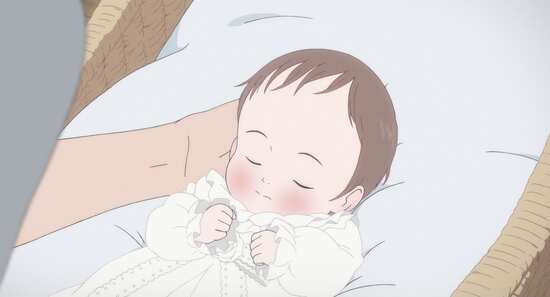
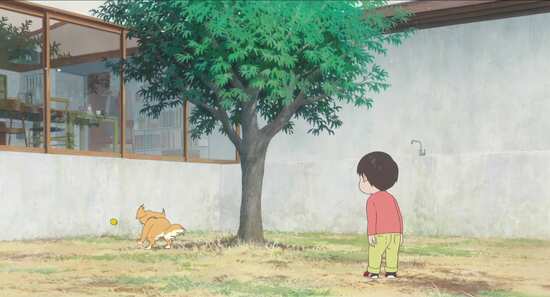
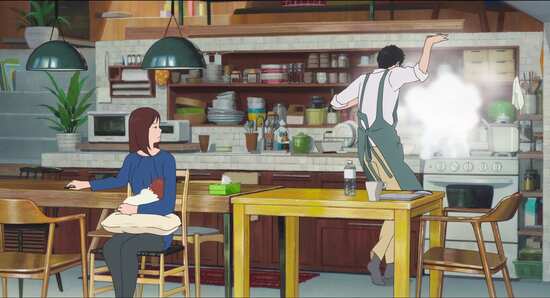
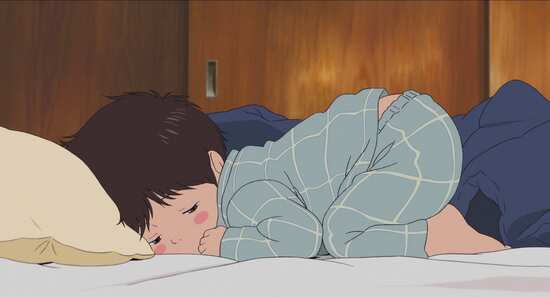
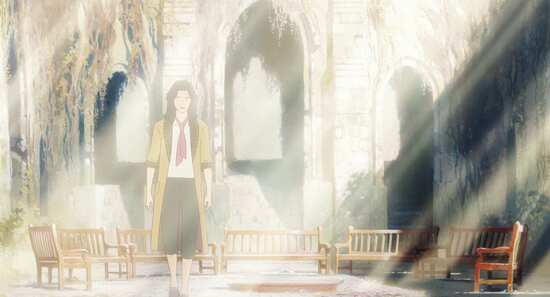
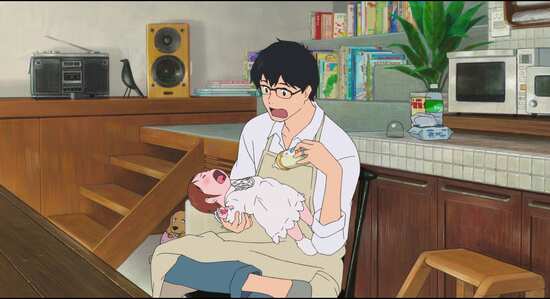
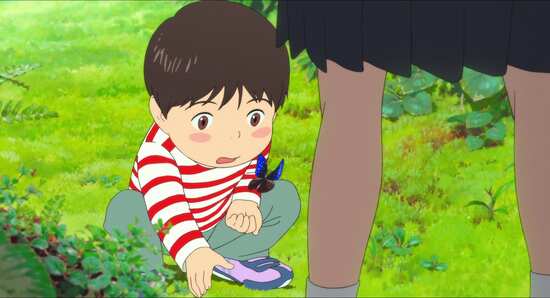
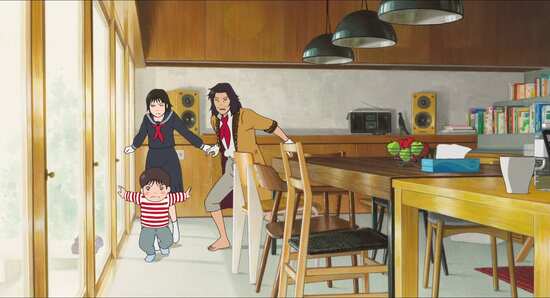
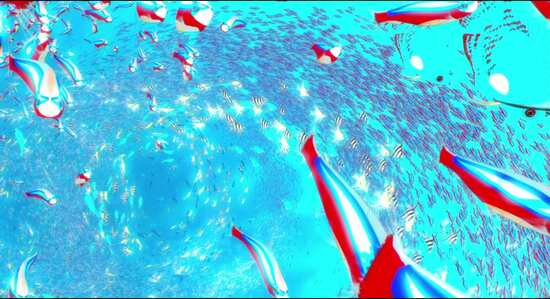
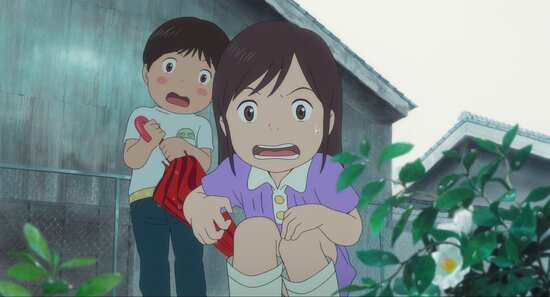
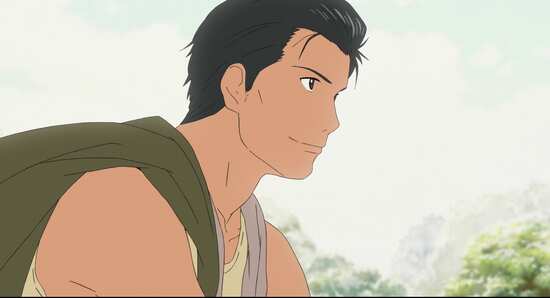
Your Opinions and Comments
Be the first to post a comment!